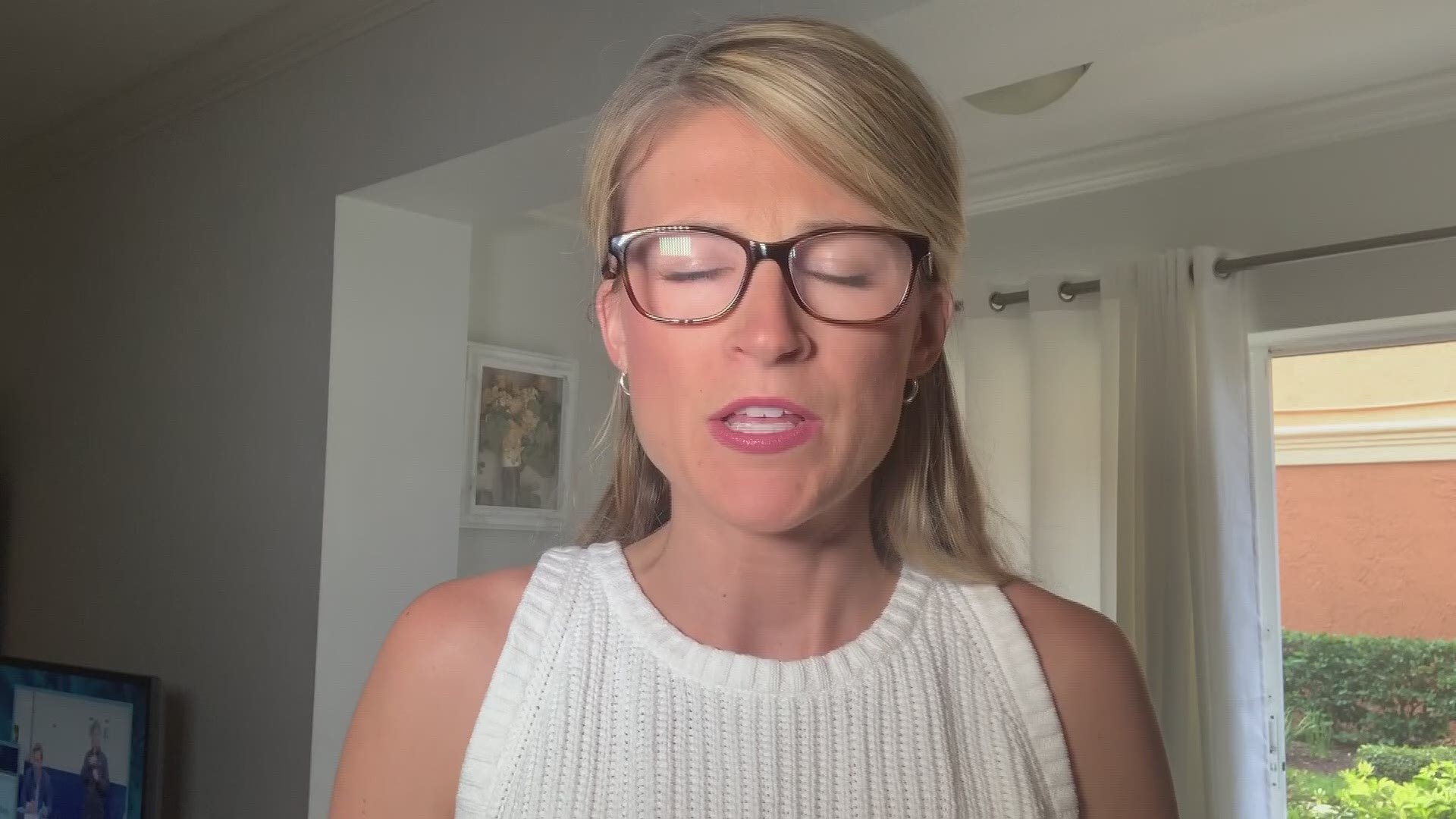JACKSONVILLE, Fla. — Homeless shelters around Northeast Florida are working together to ensure the health and safety of the homeless population during the coronavirus pandemic. The Jacksonville non-profit Changing Homelessness told First Coast News last week they had a plan in place with the help of local hospitals, hotels and the mayor’s office.
As they work to fine tune and expand that plan in the coming days, local shelters are also issuing a new "urgent" call for homemade masks and other supplies during this time.
Dawn Gilman, the CEO of Changing Homelessness, said there is a large number of individuals who are “street homeless or unsheltered” on the first coast who have one or more underlying health problems that make then more vulnerable to the coronavirus.
“We are working on standing up another project to be able to move them off the streets where they can stay in self-isolation, so they don't get this illness,” said Gilman. “The early medical research out of California on homeless individuals shows they are twice as likely to need hospitalization than someone who is housed. They are two to four times more likely to need critical care once they are in hospital. They are two to three times more likely to die from this virus than someone who is not homeless.”
Gilman said representatives from her organization speak with the mayor’s office twice a week over a conference call. They are working on bringing in supplies for the local shelters.
She said they are not turning their social workers and frontline staff into medical personnel. Part of their protocol is to make sure their staff members didn't feel like they had to make medical decisions. She said the Sulzbacher Center is a federally qualified health care clinic for the homeless so it’s the most qualified shelter during this time as far as medical screening goes.
“They are actively pursuing every avenue to get test kits. That is something all of us are aware of," Gilman said. "Cindy Funkhouser, their CEO, has pursued several different local, state and federal efforts. As we all know, every county in the United States is scrambling for those, but I am pretty optimistic that we will have some available probably by next week.”
After distributing five tablets to each local shelter, they are now screening everyone who walks into the City Rescue Mission, the Trinity Rescue Mission the Sulzbacher, the Salvation Army and the Clara White Mission. That screening includes taking their temperature and asking a series of questions about possible symptoms, such as coughing and shortness of breath.
Individuals can go to the Sulzbacher Center or get help dialing in via Zoom to speak with a physician via Telehealth. The physician would need to decide if the individual needs to be transferred to Sulzbacher for an in-person evaluation, if they aren’t there already, or if it’s okay to enter the shelter where they are at that time.
“We are reassuring them that even if they don't have insurance they are able to go and get medical help for this,” said Gilman. “Often our folks frequent the emergency room, where they can get immediate care. This group and the mayor's task force have created Palm Cards that all of the different agencies are handing out.”
The Palm Cards explain the symptoms of the coronavirus, the measures that need to be taken and where they should go if they need help.
Gilman said the Florida Department of Health has a plan in place for the homeless population for any communicable disease; the Department is advising the shelters during this time. If they do have someone who needs to be transported, they are won’t use their personal vehicles. In fact, they can safely use non-emergency ambulances for transportation.
The task force is working on putting up posters with information around the tri-county area where homeless individuals frequent. They’re also working with a local distillery to hand out hand sanitizer inside of hygiene kits.
The biggest part of their plan is their isolation facility. They are partnering with hotels to give rooms to homeless individuals who need it. The rooms are for someone who a doctor has ordered to self-isolate for 14 days, for someone who is awaiting a COVID-19 test or someone who has tested positive but does not need hospitalization.
“Many people are having much more mild symptoms and we know that we are going to need those hospital beds for the more acute patients,” said Gilman. “Our goal is to keep people safe. To do that for them is to have them in isolation or quarantine for 14 days. It needs to be a place that they're comfortable. So we have a lot of hotel rooms in Northeast Florida that are not currently being utilized. We have started out with 40 rooms at a hotel that allows us to move people there if they are in those three categories I just mentioned.”
Gilman said they will make sure each person has three meals a day. They will have at least one in-person visual check every day and they are lining up case managers to make wellness calls from their home.
Right now they are not accepting volunteers because they don’t want to put anyone at risk who is not familiar with the shelter.
“The biggest thing is, we do need funding for this," Gilman said. "We are working with different funders to be able to expand this effort and we are starting with what we feel is the most acute need."



